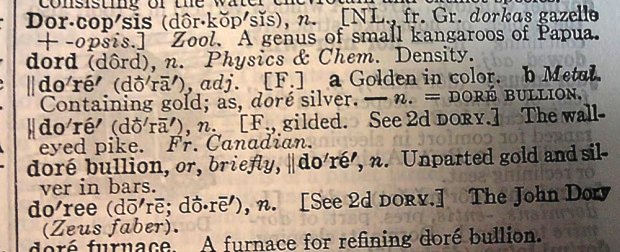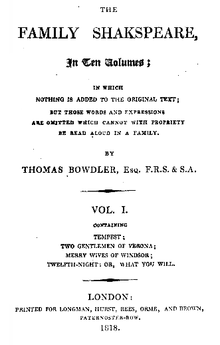Sunday, February 28, 2021
The Word DORD on This Day in History
Saturday, February 27, 2021
The Reichstag Fire On This Day in History
This Day in History: The Reichstag fire happened on this day in 1933. The Reichstag fire was an arson attack on the Reichstag building (the German parliament in Berlin) just weeks after Adolf Hitler was sworn in as Chancellor of Germany. Many consider this a false flag event*, which means that the Nazis started the fire, but they blamed the fire on their biggest competition, the Communists. This then gave Hitler the opportunity to expand his powers via the Reichstag Fire Decree. The Reichstag Fire Decree suspended most civil liberties in Germany, including habeas corpus, freedom of expression, freedom of the press, the right of free association and public assembly, and the secrecy of the mail and telephone.
This was not the first false flag event for the Germans at that time. Another was the Gleiwitz incident in 1939 where prisoners were dressed as German soldiers and then shot by the Gestapo to make it seem that they had been shot by Polish soldiers. This ruse made it possible for the Germans to invade Poland.
There are a long history of false flag events. Many consider the 9/11 attacks a false flag event, and the January 6 rally at the Capitol Building is seen as another one.
[*The term "False Flag" was coined for the practice of pirate ships flying the flags of other nations to deceive merchant ships into thinking they were dealing with a friendly vessel.]
Friday, February 26, 2021
Richard Gatling and his Gun on This Day in History
Thursday, February 25, 2021
Nikita Khrushchev's Secret Speech on This Day in History
Buy this book: The Folly of Socialism (40 Chapters) for 99 cents on Amazon
Wednesday, February 24, 2021
Thomas Bowdler (and Bowdlerization) on This Day in History
See also Over 200 Banned, Controversial and Forbidden Books on DVDrom
Tuesday, February 23, 2021
Novelist Bernard Cornwell on This Day in History
Monday, February 22, 2021
Heartbreak Hotel on This Day in History
Sunday, February 21, 2021
Tim Horton on This Day in History
This Day in History: Canadian hockey player Tim Horton died on this day in 1974 due to a single-vehicle crash in 1974 at the age of 44. Before he departed this mortal coil he did leave us with Tim Horton's donuts. In 1964, Horton opened his first Tim Horton Doughnut Shop in Hamilton, Ontario on Ottawa Street (the site of an old Esso gas station). After his death, his business partner Ron Joyce bought out the Horton family's shares for $1 million and took over as sole owner of the existing chain, which had 40 stores at the time, and later expanded to nearly 4,600 stores in Canada alone by 2013. Today, Tim Hortons is a flagship of Restaurant Brands International, a conglomerate that includes Burger King and Popeyes. Restaurant Brands International is majority-owned by 3G Capital...a company in Brazil.
Though Tim Hortons may be ubiquitous in Canada, there are actually 653 locations in 12 US states (all in the northeast).
Tim Hortons used to have an apostrophe in the name, but because the Parti Québecois banned all English signs in 1977, the apostrophe (which is an English thing) had to be dropped.
Tim Hortons represents 76 percent of the baked goods and coffee market in the Canada and almost a quarter of all fast food. It's easy to see why Canada can be called Timbit Nation.
See also: Tales from Under the Rim: The Marketing of Tim Hortons
Friday, February 19, 2021
The Mysterious Death of Elisa Lam on This Day in History
Thursday, February 18, 2021
The Pilgrim's Progress on This Day in History
Wednesday, February 17, 2021
Mystery Writer Ruth Rendell on This Day in History
Tuesday, February 16, 2021
The First 9-1-1 Emergency Telephone System on This Day in History
Monday, February 15, 2021
Galileo Galilei on This Day in History
This Day in History: Italian astronomer, physicist and engineer Galileo Galilei was born on this day in 1564. According to Stephen Hawking, Galileo probably bears more of the responsibility for the birth of modern science than anybody else, and Albert Einstein called him the father of modern science.
In his day it was believed that the sun revolved around the earth (geocentrism), however Galileo expounded the model made earlier by Copernicus that the earth revolved around the sun (heliocentrism). Because of this "heresy" Galileo remained under house arrest until his death.
This incident teaches us the importance of freedom of expression, and that science is never settled.
See also: The Censorship of Books by the Catholic Church, 1876 Article
Sunday, February 14, 2021
Presidential Firsts on This Day in History
Saturday, February 13, 2021
The Original Doomer, Thomas Malthus on This Day in History
Malthus and the Assault on Population
Friday, February 12, 2021
Charles Darwin on This Day in History
Thursday, February 11, 2021
Popes and Antipopes on This Day in History
Wednesday, February 10, 2021
Germ Hero Joseph Lister on This Day in History
Tuesday, February 9, 2021
Easy Listening Giant Percy Faith on This Day in History
Monday, February 8, 2021
Economist Joseph Schumpeter on This Day in History
For a list of all of my disks and ebooks (PDF and Amazon) click here
Sunday, February 7, 2021
Charles Dickens on This Day in History
Saturday, February 6, 2021
Continental Drift on This Day in History
Friday, February 5, 2021
Proto-Fascist Thomas Carlyle on this Day in History
Thursday, February 4, 2021
The Codex Sinaiticus Bible on This Day in History
Wednesday, February 3, 2021
The Income Tax on This Day in History
Tuesday, February 2, 2021
Sid Vicious on This Day in History
Monday, February 1, 2021
The Oxford English Dictionary on This Day in History
The Strange Case of Creating the Oxford English Dictionary (Video)
This Day in History: The first volume (A to Ant) of the Oxford English Dictionary was published on this day in 1884. The Oxford English Dictionary (OED) is the principal historical dictionary of the English language, published by Oxford University Press (OUP). It traces the historical development of the English language, providing a comprehensive resource to scholars and academic researchers, as well as describing usage in its many variations throughout the world. The second edition, comprising 21,728 pages in 20 volumes, was published in 1989.
The early history of the OED is chronicled in a very interesting 2005 book "The Professor and the Madman: A Tale of Murder, Insanity, and the Making of the Oxford English Dictionary by Simon Winchester" which was also made into a 2019 movie starring Mel Gibson and Sean Penn (two guys I can't see working together). The film and book is about professor James Murray, who in 1879 became director of an Oxford University Press project, The New English Dictionary on Historical Principles (now known as the Oxford English Dictionary) and the man who became his friend and colleague, W. C. Minor, a doctor who submitted more than 10,000 entries while he was confined at Broadmoor Criminal Lunatic Asylum at Crowthorne after being found not guilty of murder due to insanity.









